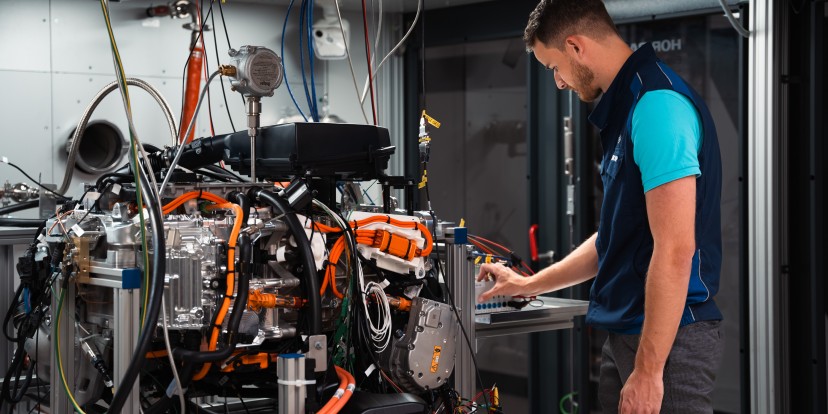Login
Max McDee, 02 September 2025
BMW
Most of the automotive world is focused on battery-powered electric cars, but stubborn BMW is charting a parallel course. The German automaker has confirmed it is advancing its hydrogen fuel cell technology, with plans to begin series production of a new generation of hydrogen EVs by 2028, made in close collaboration with Toyota. It seems the dream of a hydrogen-powered future is still very much alive at BMW, offering a different path to zero-emission driving.
The third-generation fuel cell system is a big step forward from the technology used in the company’s pilot fleet of iX5 Hydrogen vehicles. Engineers have managed to make the entire fuel cell system approximately 25% smaller. This reduction in size, combined with a considerable increase in power density, means the system can deliver more power from a more compact package.
For future electric cars, this opens up possibilities for more interior space, better vehicle dynamics, and a more streamlined integration into different car designs. The improvements also focus on efficiency, promising greater range and lower energy consumption than previous iterations.
This ambitious project wouldn’t be possible without a long-standing partnership with Toyota Motor Corporation. The first-generation fuel cell in a BMW test vehicle was supplied entirely by Toyota. For the second generation, seen in the iX5 Hydrogen, BMW developed the overall system but used individual fuel cells sourced from its Japanese partner.
For the third generation, the two automotive giants are jointly developing the core technology. This allows them to share the immense costs of research and development while still creating distinct models for their respective brands, applying the shared tech to both passenger and commercial vehicles.
A hydrogen fuel cell vehicle is a type of electric car, but instead of storing electricity in a large, heavy battery, it creates its own electricity on board. Pressurized hydrogen is stored in tanks and fed into a fuel cell stack. There, it reacts with oxygen pulled from the surrounding air. This electrochemical process generates electricity to power the car’s electric motors, with the only byproduct being pure water vapor.
To bring this technology to the masses, BMW is setting up a sophisticated production network across Europe. The company’s competence center for hydrogen in Munich, Germany, is currently building and validating prototypes of the new systems.
The main series production of the complete fuel cell systems will be handled by BMW Group Plant Steyr in Austria, a facility with decades of experience building various types of powertrains. Klaus von Moltke, the plant’s director, noted that this position allows Steyr to produce innovative electric drives alongside traditional engines, reflecting the company’s flexible strategy.
Other German plants will supply critical components. The Landshut plant will manufacture parts like the specialized housing for the fuel cell stack. It will also produce the “BMW Energy Master,” a crucial control unit that manages power flow between the fuel cell, a small high-voltage battery, and the electric motor, operating across a 400-800V range.
Prototypes of this controller are first being made at the Dingolfing plant, drawing on experience from developing similar hardware for BMW’s upcoming “Neue Klasse” battery-electric cars. BMW’s continued investment in hydrogen is part of what it calls a “technology-open” approach that gives customers a choice, rather than betting everything on a single solution.
Source
EV finder
Home News Compare About us RSS feed
Facebook Twitter Instagram
© 2022-2025 ArenaEV.com Mobile version EV Finder Glossary Privacy Terms of use
From the team behind
GSMArena.com











